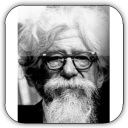 By some worldly measures, the mystic and theologian Abraham Joshua Heschel was not very embarrassable. He had fled Poland just six weeks before the Nazi invasion there, and arrived in the United States in 1940 at a time when Jews, including his fellow rabbis, were trying hard to look and sound like other (preferably secular) Americans. Heschel contributed little to the effort.
By some worldly measures, the mystic and theologian Abraham Joshua Heschel was not very embarrassable. He had fled Poland just six weeks before the Nazi invasion there, and arrived in the United States in 1940 at a time when Jews, including his fellow rabbis, were trying hard to look and sound like other (preferably secular) Americans. Heschel contributed little to the effort.
At the Jewish Theological Seminary in New York, the professor would show up at 7:00 a.m. morning services donning a prayer shawl and tefillin—two small leather boxes containing scrolls with passages from the Torah (he wrapped one box around an upper arm, the other, around his forehead). During prayers he swayed back and forth while the other professors “sat stiffly, dignified,” his biographer Edward K. Kaplan noted. Heschel sported a yarmulke and grew what eventually turned into a conspicuous white beard with a surfeit of tousled white, wavy hair, as though he were vying for the lead role in a movie about the ancient Hebrew prophets.
Heschel did have, however, a sense of what he termed “ultimate embarrassment.” As he saw it, this is the feeling all people of faith should have, when they stand in awe of a God who is just and righteous, who demands more of them and their world.
I am afraid of people who are never embarrassed at their own pettiness, prejudices, envy, and conceit, never embarrassed at the profanation of life…. There are slums, disease, and starvation all over the world, and we are building more luxurious hotels in Las Vegas.
These words were penned by Heschel in 1965—the same year he strode with Martin Luther King in the front line of the march from Selma to Montgomery for voting rights. Susannah Heschel, a noted religious-studies scholar at Dartmouth, says her father (who died in 1972) looked upon embarrassment as the beginning of religious faith, but not the end.
“Embarrassment is the impulse that must lead to an awareness of being challenged,” she comments in a superb new collection, Abraham Joshua Heschel: Essential Writings, which she edited as part of the Modern Spiritual Masters Series published by Orbis Books (a Catholic publisher).
Less Than Mortified
Heschel’s theology of embarrassment resonates politically at a moment when poverty appears to be metastasizing in America. This month the Census Bureau reported that more than 46 million Americans were struggling below the official poverty line of $22, 314 a year for a family of four. At 15.1 percent it is the highest poverty rate since the early 1990s.
Conservatives used the data to proclaim the failure of Obamanomics and trumpet their agenda of unceasing tax-and-regulation-slashing. Liberals reasserted the need for a raft of social-welfare policies including extended unemployment insurance (an existing policy that the Bureau said had kept a few million other Americans out of poverty).
Analysts and partisans responded quickly to the news, but were scarcely mortified. There seemed to be little pause for reflection, little soul-searching about our collective failure over decades to lift all boats, even in the midst of rising economic tides.
One analyst who has scaled the subject with both urgency and humility is Pulitzer Prize-winning former New York Times correspondent David K. Shipler. During the 1990s boom, Shipler began a long search for understanding. He traveled to African American neighborhoods in Washington, D.C., and all-white towns in rural New Hampshire, to malnutrition clinics in Boston and sweatshops in California, and many points in between.
The result was the best book on poverty I’ve ever read, next to Michael Harrington’s 1962 classic The Other America. Shipler wrote in his 2004 book The Working Poor:
Working poverty is a constellation of difficulties that magnify one another: not just low wages but low education, not just dead-end jobs but also limited abilities, not just insufficient savings but also unwise spending, not just poor housing but also poor parenting, not just the lack of health insurance but also the lack of healthy households.
Such balance (“unwise spending”) might seem less to the point now, as more Americans fall into poverty for reasons completely beyond their control. Just the same, Shipler achieved a tone and spirit that would elevate any conversation about this continuing American scandal. The closing words of his remarkable reportage were, “It’s time to be ashamed.”
Across time and celestial space, one could almost hear Rabbi Heschel intoning those same words. …read more





